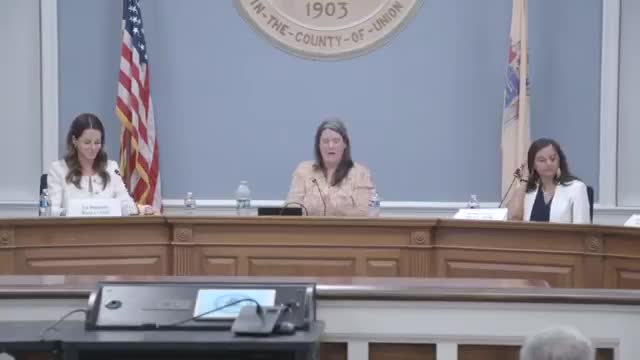Westfield candidates say they will defend affordable housing plan but oppose new pilot tax deals
October 10, 2025 | Westfield, Union County, New Jersey
This article was created by AI summarizing key points discussed. AI makes mistakes, so for full details and context, please refer to the video of the full meeting. Please report any errors so we can fix them. Report an error »

At the candidate forum, affordable housing obligations under New Jersey's Mount Laurel framework drew bipartisan support for the council's recently passed plan, but most candidates said they would not back new pilot agreements or further tax abatements.
"The current bipartisan affordable housing plan that just passed in council...helps us remain compliant with the Mount Laurel agreement," said Reshma Adwar, the Ward 1 Democratic candidate. "I will defend this plan because I don't want to get into legal jeopardy with the state of New Jersey."
Multiple candidates—Democrats and Republicans—said they supported meeting Mount Laurel obligations while minimizing density where possible and protecting neighborhoods. At the same time, several speakers criticized pilot programs offered to developers and said they should not be pursued going forward. "A resounding no" to future pilots came from Jason Sevets, Ward 2 candidate, who said pilots are a "gimmick" for Westfield and that the town should not be treated as blighted for redevelopment purposes.
Candidates discussed how to spend revenues already generated by existing pilot agreements. Jen Gilman (Ward 3) and others suggested using pilot revenues to offset school district debt service from a recent bond referendum or to fund town services that directly relieve resident tax burdens. Vic Pinketturaman noted that an existing pilot (Westfield Crossing) supplied funds for fields and asked the council to decide how to allocate those revenues.
Ending: Forum participants framed affordable housing as a legal obligation to be met responsibly while urging restraint on new pilot or abatement incentives and proposing targeted use of existing pilot revenues; no formal legislative actions were taken during the event.
"The current bipartisan affordable housing plan that just passed in council...helps us remain compliant with the Mount Laurel agreement," said Reshma Adwar, the Ward 1 Democratic candidate. "I will defend this plan because I don't want to get into legal jeopardy with the state of New Jersey."
Multiple candidates—Democrats and Republicans—said they supported meeting Mount Laurel obligations while minimizing density where possible and protecting neighborhoods. At the same time, several speakers criticized pilot programs offered to developers and said they should not be pursued going forward. "A resounding no" to future pilots came from Jason Sevets, Ward 2 candidate, who said pilots are a "gimmick" for Westfield and that the town should not be treated as blighted for redevelopment purposes.
Candidates discussed how to spend revenues already generated by existing pilot agreements. Jen Gilman (Ward 3) and others suggested using pilot revenues to offset school district debt service from a recent bond referendum or to fund town services that directly relieve resident tax burdens. Vic Pinketturaman noted that an existing pilot (Westfield Crossing) supplied funds for fields and asked the council to decide how to allocate those revenues.
Ending: Forum participants framed affordable housing as a legal obligation to be met responsibly while urging restraint on new pilot or abatement incentives and proposing targeted use of existing pilot revenues; no formal legislative actions were taken during the event.
View full meeting
This article is based on a recent meeting—watch the full video and explore the complete transcript for deeper insights into the discussion.
View full meeting
